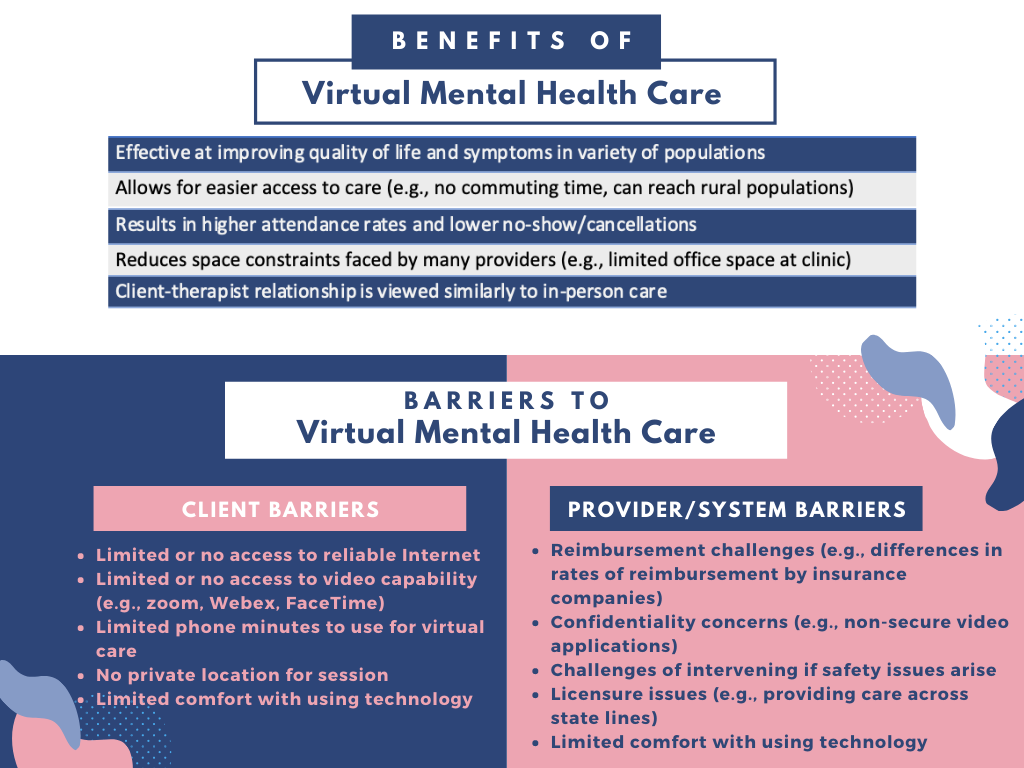Research Review: Benefits and barriers to virtual mental health care
Digital health has increased the range of mental health care options and offers promise as healthcare enters a digital age. However, when considering virtual mental health care, both benefits and/or barriers must be considered. We have outlined the commonly described benefits and barriers to virtual mental health care based on the existing research and our own clinical experiences:

Julia Browne, PhD
Clinical Research Fellow & Junior Investigator, MGH COE
References
- Bashshur, R. L., Shannon, G. W., Bashshur, N., & Yellowlees, P. M. (2016). The empirical evidence for telemedicine interventions in mental disorders. Telemedicine and e-Health, 22(2), 87-113.
- Chakrabarti, S. (2015). Usefulness of telepsychiatry: A critical evaluation of videoconferencing-based approaches. World Journal of Psychiatry, 5(3), 286-304.
- Hubley, S., Lynch, S. B., Schneck, C., Thomas, M., & Shore, J. (2016). Review of key telepsychiatry outcomes. World Journal of Psychiatry, 6(2), 269-282.
- Leigh, H., Cruz, H., & Mallios, R. (2009). Telepsychiatry appointments in a continuing care setting: Kept, cancelled and no-shows. Journal of Telemedicine and Telecare, 15(6), 286-289.
- Mongelli, F., Georgakopoulos, P., & Pato, M. T. (2020). Challenges and opportunities to meet the mental health needs of underserved and disenfranchised populations in the United States. Focus, 18(1), 16-24.
- Saeed, S. A., Johnson, T. L., Bagga, M., & Glass, O. (2017). Training residents in the use of telepsychiatry: review of the literature and a proposed elective. Psychiatric Quarterly, 88(2), 271-283.
- Simpson, S. G., & Reid, C. L. (2014). Therapeutic alliance in videoconferencing psychotherapy: A review. Australian Journal of Rural Health, 22(6), 280-299.